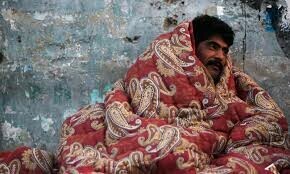DOES Islam allow, while deciding on the sighting of the crescent, reliance upon space sciences, instead of seeing the new moon with the naked eye? Is organ transplant permissible under Islamic jurisprudence? Is there any scientific and rational explanation for the Day of Judgement? Is it possible to establish Islamic Khilafat in today’s world? What is the Quranic concept of freedom of expression? All these and similar questions often torment Muslims who are increasingly at odds with what is going on in the rest of the world.
But when it comes to scientific approach to religion, Pakistani society has become quite different from rest of the Islamic countries, let alone the entire world. We are content with our old ways, quite oblivious of changes taking place all around us. Secondly, we are, let us admit it, quite intolerant of different religious opinions and love to force our views on others. “What can be more tragic than the fact that during the last 65 years or so Pakistani society has become, for a number of reasons, religiously intolerant to such an extent that now there is no room in our society for someone who wants to express a different opinion, even if it is based on knowledge and research,” laments Prof Dr Tahir Masood in his preface to Dr Muhammad Shakeel Auj’s new book Afkaar-e-shugufta. Since the book is a brave attempt to see some religious issues from a modernistic yet Islamic point of view, one feels that Dr Masood’s lament succinctly describes the need and importance of the book that addresses some burning issues faced today not only by Pakistani Muslims but the Muslim Ummah as a whole.
Published by Karachi University’s faculty of Islamic Studies, the book is, apparently, a collection of research-based articles expounding the author’s views on some issues related to Islamic Studies. But it, in fact, is an attempt to see some touchy issues from different perspectives. These touchy issues, some of which can be called contentious, too, are discussed in the light of Quranic injunctions and the teachings of the Prophet (Peace be upon him). In doing so, the author has not only kept himself limited to any particular school of thought and one can find references to scholars of religious backgrounds as varied as Maulana Maudoodi and Maulana Ahmed Raza Khan Barelvi.
Dr Muhammad Shakeel Auj, the author, is a professor and dean at Karachi University’s faculty of Islamic Studies. To his credit there are a number of books and he also edits Al-Tafseer — an HEC-recognised research journal on Islamic Studies. But what sets Dr Auj apart from his contemporary ‘moulvis’ and researchers is his research-based analysis entwined with modern and logical approach towards understanding Islam. At the same time, he strictly adheres to the basic sources of Islamic beliefs, that is, the Quran and the Sunnah. He usually begins an article with a quotation from the Quran, goes on to quote the sayings of the Prophet (Peace be upon him), which are relevant to the issue under discussion, and then turns to some authorities on Islamic jurisprudence and interpretation of the Quran (tafseer). But then he views the issue from quite a different perspective keeping in mind the modern scientific developments and logical aspects. In the final analysis, Dr Auj gives his opinion in such a manner that it seems quite delicately balanced between the orthodox views and the modern interpretations.
One may or may not agree with Dr Auj on several issues, but the difference of opinion is something that even Islam encourages (though it may sound strange in today’s world, it is a fact that Islam indeed encourages difference of opinion on religious issues). Today what we need most is looking at things from a different perspective and respecting different opinions, especially if they are based on research and expressed logically and unemotionally. This is something that Dr Auj does quite effortlessly.
Apart from being equipped with modern knowledge and open to scientific approaches, a characteristic that makes Dr Auj different from other scholars or the traditional ‘ulema’ is that he knows his limitations, does not insist on being right all the time, is open to suggestions and further research and, more importantly, admits that he has had different views in the past and has been under some influence of different schools of Islamic jurisprudence. He acknowledges in the introduction to the book that his views have evolved over the years and that evolution is but natural.
One can say that Dr Auj is an Islamic scholar with a difference in the sense that he does not have a narrow world view, nor does he have unflinching ways peculiar to some so-called religious scholars.
Published in Dawn, July 8th , 2014














































